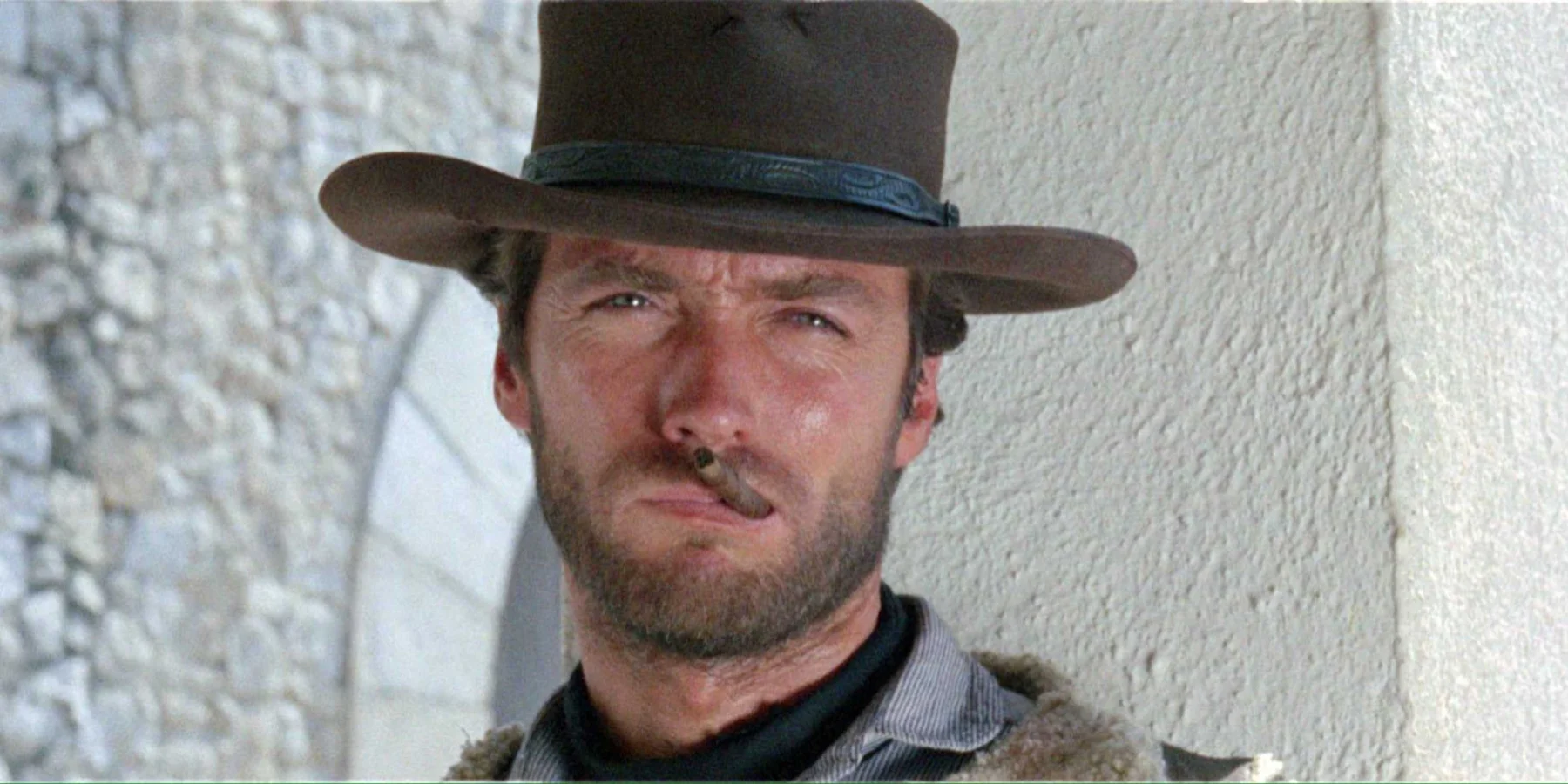Clint Eastwood’s remarkable career features some of the most influential films in cinema history, both as an actor and a director. Known for shaping the archetype of the lone outlaw in Westerns and delivering hard-hitting dramas based on real events, Eastwood’s legacy is enshrined in numerous classics that continue to captivate audiences.
These Clint Eastwood iconic movies showcase his enduring appeal, whether through his magnetic screen presence or his skillful direction. Spanning decades and genres, these films provide a vital look at his impact on Hollywood and testaments to his artistry.
Defining Western Legends: The Good, the Bad and the Ugly (1966)
Among the standout entries in Sergio Leone’s Dollars Trilogy, Clint Eastwood’s portrayal of the Man with No Name in The Good, the Bad and the Ugly firmly cemented his place as a Western icon. His cool, taciturn style, memorable lines, and distinctive look made this outlaw figure unforgettable in film history.
Enhanced by Ennio Morricone’s unforgettable musical score, the film’s climactic three-way duel is one of the most iconic scenes in the Western genre. Although Eastwood revisited Western themes throughout his career, the massive cultural influence of this film remains difficult to surpass.
Redefining the Action Hero: Dirty Harry (1971)
In Dirty Harry, Eastwood introduced audiences to Inspector Harry Callahan, creating a new archetype of a gritty, uncompromising law enforcement officer. This film, inspired by the real-life Zodiac Killer, helped spawn a genre built around complex cops who operate outside the typical rules.

“Do I feel lucky? Well, do ya, punk?”
– Harry Callahan’s iconic challenge became a hallmark of Eastwood’s tough-guy persona and helped establish a successful franchise that spanned five films. Eastwood’s portrayal elevated what could have been a routine crime thriller into a lasting cultural touchstone.
A Unexpected Twist: Thunderbolt and Lightfoot (1974)
Known more for drama and Westerns, Eastwood ventured into comedic territory with Thunderbolt and Lightfoot, Michael Cimino’s directorial debut. Eastwood plays Thunderbolt, a disguised preacher accidentally rescued by Lightfoot, a car thief portrayed by Jeff Bridges, in a crime comedy with sharp wit and action.
The chemistry between Eastwood and Bridges powers this lively film filled with robberies and high-speed chases. Although Eastwood’s performance is strong, it was Bridges who received an Academy Award nomination for his role, signaling a breakthrough in his career.
A Darker Western Vision: The Outlaw Josey Wales (1976)
In The Outlaw Josey Wales, Eastwood directed and starred in a revisionist Western set during the Civil War. His character seeks brutal revenge on pro-Union militants responsible for murdering his family, exploring the depths of grief and the harshness of violence.
This film allowed Eastwood to delve into darker emotional territory and provided a thoughtful reflection on a tumultuous period in American history. It solidified Eastwood not only as a leading actor but also as a significant filmmaker with a nuanced vision of America’s past.
A Mature Reflection on the West: Unforgiven (1992)
After years of defining the Western genre, Eastwood returned with Unforgiven to present a more reflective and somber take. Playing Will Munny, an aging outlaw pulled back into a violent world, Eastwood confronts themes of morality, justice, and the true cost of violence.
Winning Best Picture, Unforgiven features powerful supporting roles from Morgan Freeman and Gene Hackman, and remains one of the best-regarded Westerns ever made. Eastwood’s dual role as actor and director deepened the film’s intense emotional resonance.
Mastering Dark Drama: Mystic River (2003)
As a director, Eastwood showcased his dramatic prowess with Mystic River, a neo-noir thriller about childhood friends torn apart by a tragic murder. The investigation into the death rekindles past traumas and forces the characters to confront buried secrets.
The film features an Oscar-winning performance by Sean Penn and explores themes of grief, violence, and family bonds. Eastwood’s direction brings a powerful gravity to this dark procedural drama, elevating it beyond typical crime stories.
Life Lessons Through Sports: Million Dollar Baby (2004)
Eastwood earned his second Academy Award for Best Director with Million Dollar Baby, portraying Frankie Dunn, an aging boxing coach who trains Hilary Swank’s underdog fighter, Maggie Fitzgerald. The sports drama begins by seeming to follow a familiar path but takes a profound turn after a life-changing injury.
The film shifts into a moving meditation on illness, dignity, mortality, and ethical complexity. Eastwood’s nuanced direction and heartfelt performances make this more than just a boxing story—it’s a resonant exploration of human resilience and compassion.
Exploring Prejudice and Redemption: Gran Torino (2008)
Gran Torino highlights social issues such as racism and empathy through the story of Walt Kowalski, a widowed Korean War veteran who initially resists his Hmong neighbors. When a young boy attempts to steal Walt’s prized car, their conflict sparks an unexpected journey of understanding.
Eastwood directs and stars in this gritty, emotionally charged film that challenges stereotypes and reveals the potential for change, even in the most hardened characters. Walt’s transformation embodies the film’s powerful themes of redemption and community.
True Story Spotlight: Richard Jewell (2019)
Continuing his talent for dramatizing real events, Eastwood’s Richard Jewell revisits the 1996 Centennial Olympic Park bombing and the media storm that engulfed the security guard falsely accused of planting the bomb. Paul Walter Hauser delivers a compelling performance as Jewell, highlighting the personal cost of public suspicion.
This film critiques sensationalist journalism and society’s rush to judgment, standing out as a strong late-career achievement that maintains Eastwood’s interest in justice and character-driven storytelling.
Continuing a Legendary Career: Juror #2 (2024)
Even in his 90s, Eastwood remains prolific, with Juror #2 representing his latest work. The film stars Nicholas Hoult as a man called for jury duty who gradually suspects he himself may have committed the crime under trial, creating a tense moral dilemma.
Juror #2 continues Eastwood’s exploration of justice, social bias, and personal responsibility, proving that his cinematic spark remains undiminished as he grapples with complex, thought-provoking themes.
